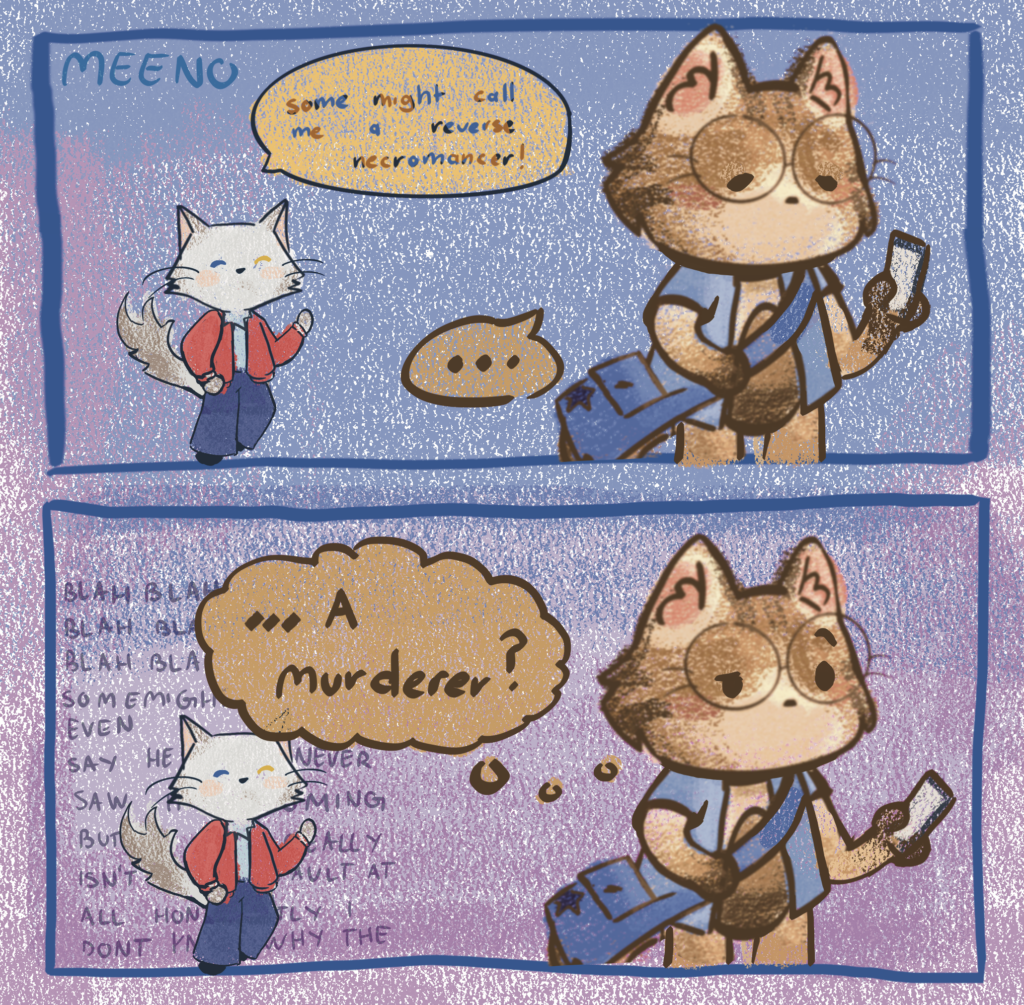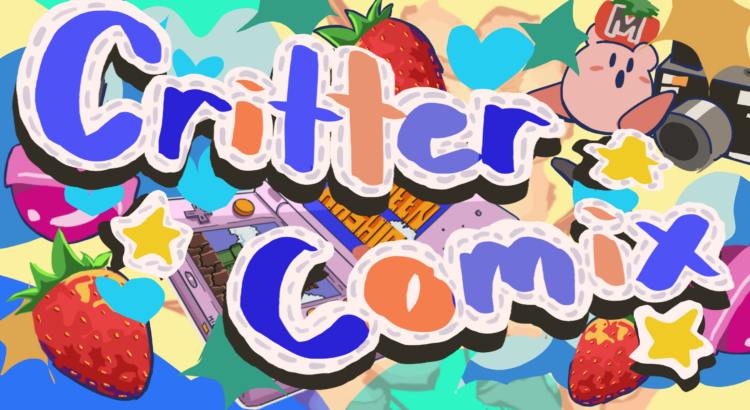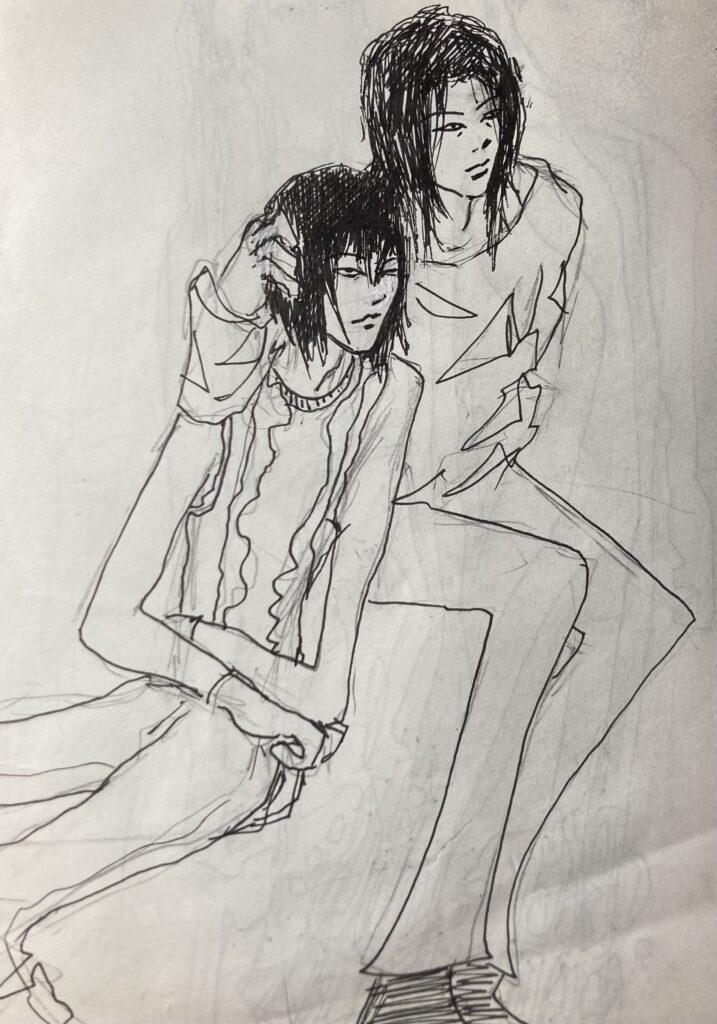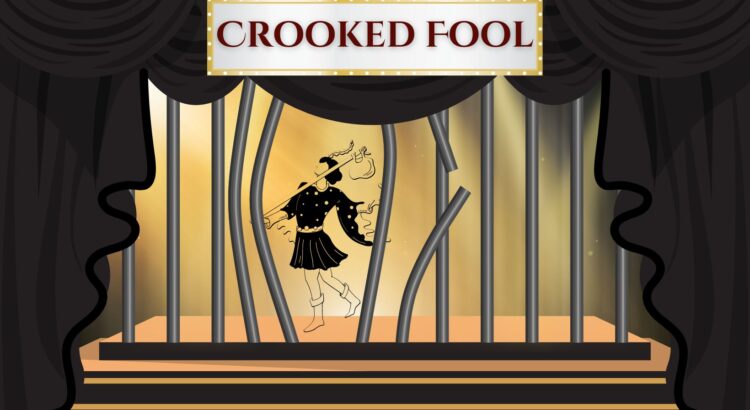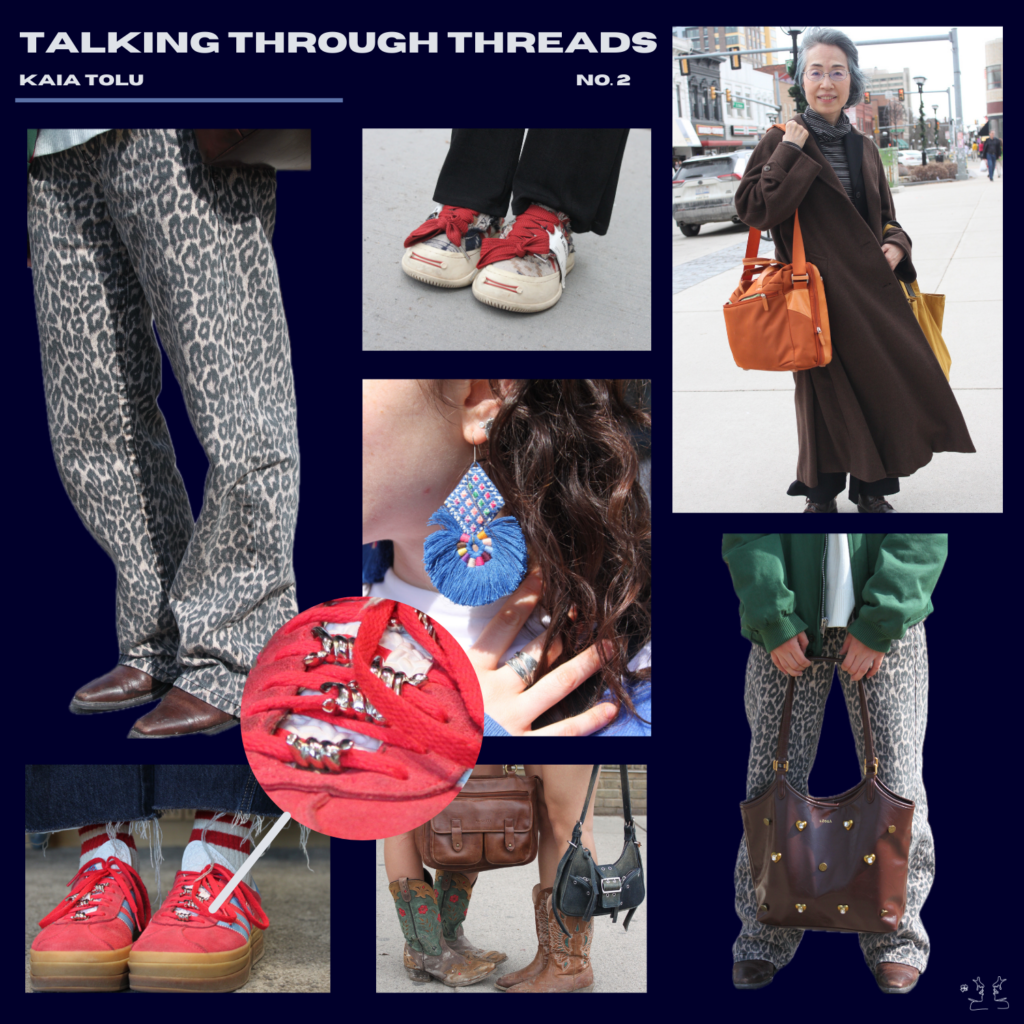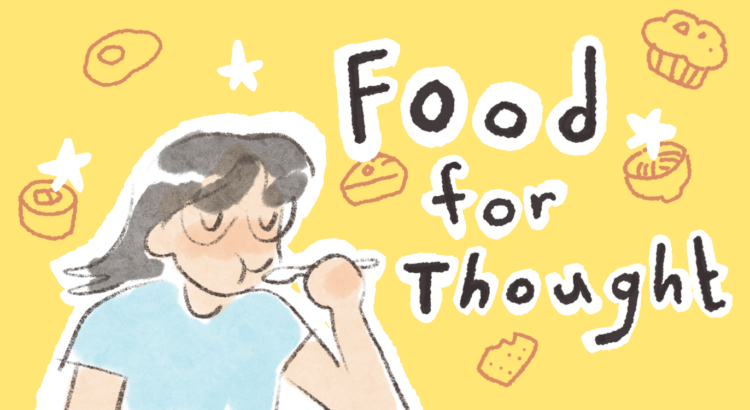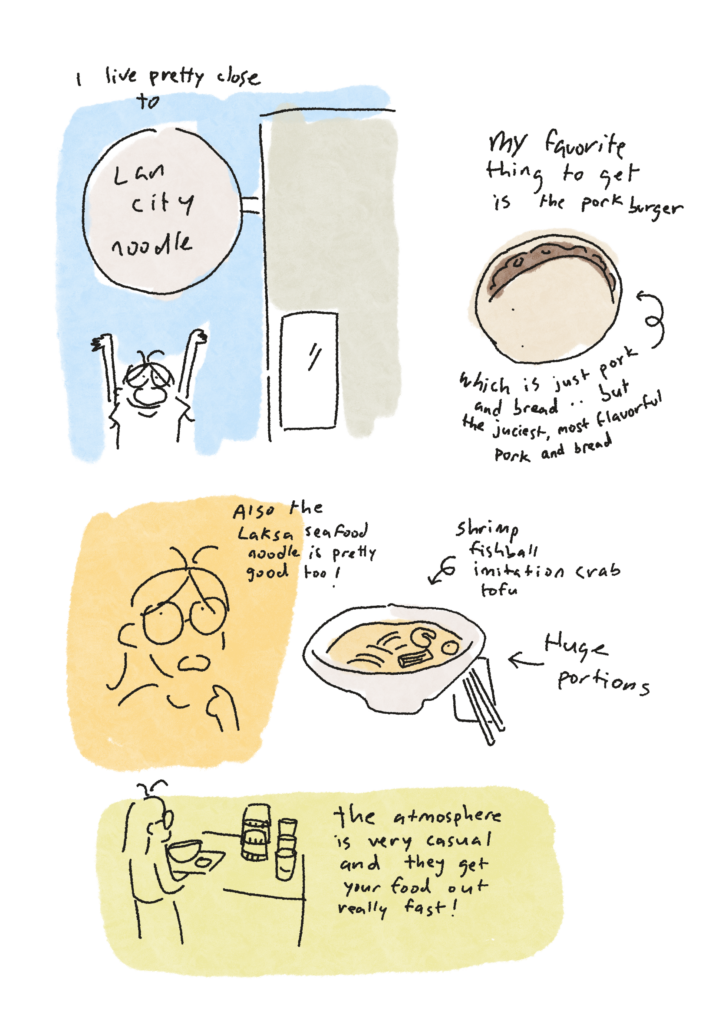hi everyone (•̀ᴗ•́)و ̑̑ my name is dai / 戴丽 (they/TA) and welcome to my series! i was previously an arts, ink. columnist as a freshman, and have just returned to arts, ink as a (much more experienced) senior. my new series will basically act as a web diary, embodying my weekly wandering thoughts through sketches and ramblings in the hopes that anyone can relate (or at the very least, spark some reflection in a reader or two). i hope that i will keep myself accountable in sitting down and reflecting every week here!
this week’s diary sketch (◡̈ ):
this week’s diary entry(˶′◡‵˶):
in this week’s entry, i wanted to talk about confidence and self-perception. like many people, i grew up kind of “ugly”, though i didn’t really know it. i finished middle school and most of high school with very little awareness and even less dating experience. it was only when i started college, eager to dive head-first into an exciting pool of new experiences, that i started exploring dating apps, going on blind dates (that always failed), and getting with random strangers on Necto Friday nights. looking back, i was both insecure and brazen in my confidence.
now, as a senior, i feel like i’ve finally developed a stronger sense of self, something achieved only through a painful process of letting go of what used to feel right. i like to think i’ve gained individuality, maturity, and confidence. naturally, that’s come with greater self-awareness of myself and my body. in fact, until a few months ago, i dont think i even really knew what my face or body looked like.
but what’s strange is that now that i’ve gained this awareness, i’ve become more controlling and anxious of myself. even when i’m alone, i find myself constantly evaluating myself from an outside perspective. somewhere during this process of self-discovery, i’ve become more anxious. despite the fact that i’m perceived as more “desirable” than before, i can’t do a lot of the things i did freshman year, like going on blind dates. the idea of putting myself out there gives me a sense of uneasiness, the type that makes you feel like your throat is closing up.
recently, i had a chat with a friend about this. it was past midnight, and we were sitting under the warm, dim kitchen light in my apartment. she quoted Margaret Atwood at me: “you are a woman with a man inside watching a woman. you are your own voyeur.” she had prefaced it with, “i’m sure you already know this quote…” (i nodded yeah, even though i hadn’t). even as someone who’s queer, who does not identify as a woman or seek out men romantically, i find myself relating a lot to that quote. particularly when I present femininely, i catch myself watching from an outside perspective—and in doing so, reaching for some feminine beauty standard, especially in clubbing or dating contexts.
my friend continued by arguing about how sexualization and objectification aren’t the same thing. people are used to being the “subject” in their thoughts. but when they are forced to view themselves from an outside perspective, you suddenly become the object, creating that feeling of uncomfortableness and dissonance with yourself. this sense of objectification is not limited to sexual contexts, but also racial or cultural ones where someone may be depersonalized due to their race or other aspects of their identity.
W.E.B. Dubois has written about the idea of double consciousness, which describes how black Americans experience a “peculiar sensation” of always looking at themselves through the eyes of others, particularly white society, who views them through a lens of racism and marginalization. don’t get me wrong, my experience and privilege as a light-skinned east Asian is very different to that of black Americans. yet, i’ve always related to the feeling of “two-ness” that Dubois described. even as a young child, i was hyperaware of my race and how i was being viewed as a girl and an Asian. because of this, i’ve always felt a conflict between my internal identity as an individual and the external perception of that identity. in response, i would actively counteract the way I believed I was being racially and femininely perceived through my behavior and dress. finding out who i am and which people i want to surround myself by has been incredibly helpful, but i still find myself feeling this way at times.
my own feelings of uncomfortability rises from being perceived in ways that i know differ from my internal identity. the more aware i become of my body and other’s perceptions of me, the more i can cater myself into something stylish, interesting, and charming. at the same time, i become more anxious about my image and feel less like myself.
i wonder if anyone feels something similar. is the real answer not to engage in “self-improvement”, but “self-neutrality”? to yourself and body? how do i be both self-aware and comfortable with external perception? does having a “glow up” really mean you’ve gained confidence or self-acceptance? i don’t know, but i hope this made anyone who reads this reflect. sorry for the excessively long first post, see you next week!
-dai
⊹ ₊ ⁺‧₊˚ ♡ ପ(๑•ᴗ•๑)ଓ ♡˚₊‧⁺ ₊ ⊹
weekly recommendations!!
- book: Martyr! – Kaveh Akbar
- album: We’re Not Here To Be Loved – Fleshwater
- show/movie: Mob Psycho 100
- food: chicken mofongo
